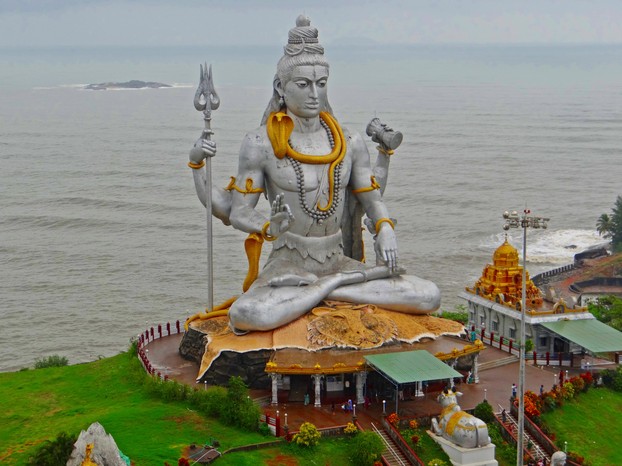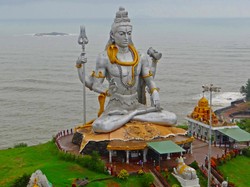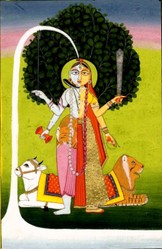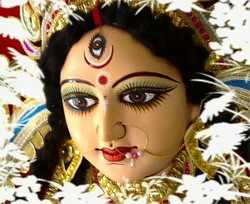The word 'Maha Shivarathri' can be translated as the 'Great Night Of Shiva'. The day and night on Maha Shivathri are dedicated to the worship of Lord Shiva, even though the prime importance is for the night. The temples will always be busy and crowded with special poojas and rituals.
The sacred panchakshari mantra "Om Namah Shivaya" is always recited, along with other mantras.
Those who observe Shivarathri do not sleep on that day. They will be awake for the entire day and night. The observance of Shivarathri is mostly focused on avoiding sleep. You can fast the whole day or limit food if you wish, but that is not very necessary as the focus is to avoid sleeping at night. What I have seen mostly is that those who plan to stay awake at night usually eat rice only for lunch and then use fruits and sometimes wheat based food for dinner. Some people prefer to just have the food offerings from the temple.
Lunch is freely offered from most of the Shiva temples on Shivarathri day, known as Annadanam. So even if you decide to fast by limiting food, you can have the food offered from the temples.
If you decide to avoid sleep and be awake on Shivarathri, you should not sleep on the day and night. You can sleep once you see the star on the sky, the next day evening. In brief, you will not be sleeping for two days and the Shivarathri night.









 Beach Wedding Dresses - Exotic Wedding Gowns For Beach Theme Weddingson 12/24/2016
Beach Wedding Dresses - Exotic Wedding Gowns For Beach Theme Weddingson 12/24/2016
 Purple Wedding Dresses For Bride - Dresses For Purple Theme Weddingson 03/29/2016
Purple Wedding Dresses For Bride - Dresses For Purple Theme Weddingson 03/29/2016
 Ladies Purple Wedding Shoes | Purple Themed Wedding Shoes For Womenon 04/04/2016
Ladies Purple Wedding Shoes | Purple Themed Wedding Shoes For Womenon 04/04/2016
 Unique Gifts For Horse Lovers - Unique Horse Themed Gifts For Kids & Adultson 12/16/2016
Unique Gifts For Horse Lovers - Unique Horse Themed Gifts For Kids & Adultson 12/16/2016



Comments
Hi Mira, thanks for reading! Pooja means worship.
Interesting. I loved the story about how his body turned blue. What does pooja mean?
Thanks so much for reading Frank and WriterArtist!
Shiva is an important deity in Hindu religion. I loved to hear the myths, anecdotes connected to Lord Shiva. My father used to tell me many stories about Parvathi and Ganesha. Reading your article reminded me of my childhood and the enthusiasm of celebrating all these festivals. Enjoyed reading this article.
Thanks for this. I had not heard of this festival before. Keep up the good work.